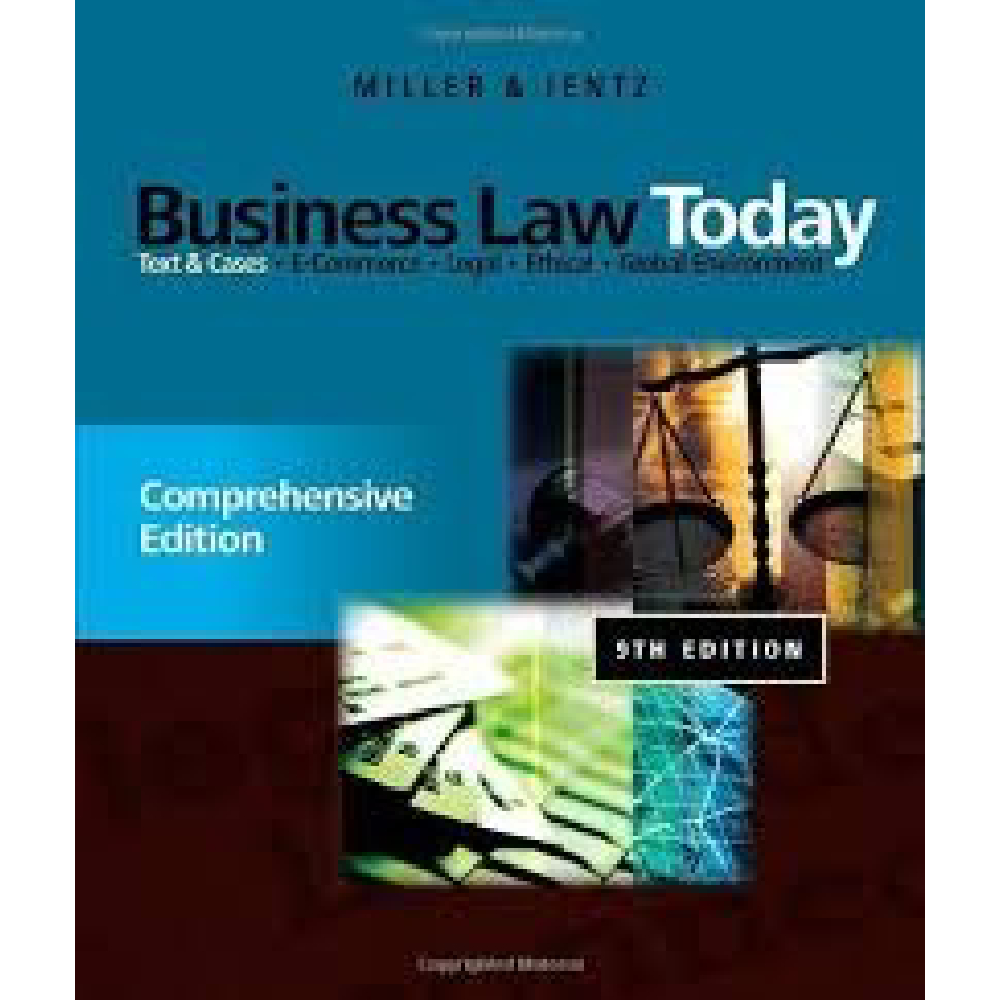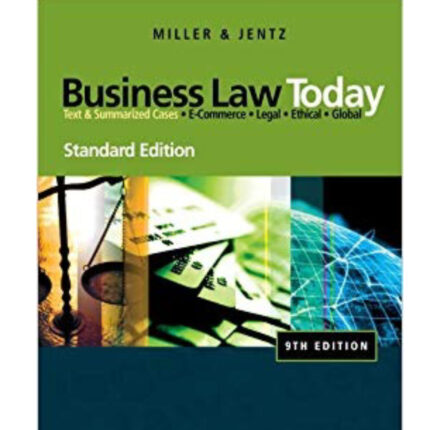Business Law Today Comprehensive Text and Cases 9th Edition By Roger LeRoy Miller – Test Bank
TRUE/FALSE QUESTIONS
1. In contract law, “consideration” refers to the courtesy that one party shows another in negotiating a deal.
ANSWER: F PAGE: 248 TYPE: =
NAT: AACSB Analytic AICPA Legal
2. Use of the word consideration in an agreement means that consideration has been given.
ANSWER: F PAGE: 248 TYPE: =
NAT: AACSB Reflective AICPA Legal
3. In contract law, “consideration” refers to the time that a party takes to evaluate a deal.
ANSWER: F PAGE: 248 TYPE: =
NAT: AACSB Analytic AICPA Legal
4. If a promise is made, it will be enforced.
ANSWER: F PAGE: 248 TYPE: =
NAT: AACSB Analytic AICPA Critical Thinking
5. Failing to use the word consideration in an agreement means that no consideration has been given.
ANSWER: F PAGE: 248 TYPE: =
NAT: AACSB Reflective AICPA Legal
6. For consideration to have “legally sufficient value,” it must con¬sist of goods or money.
ANSWER: F PAGE: 249 TYPE: =
NAT: AACSB Analytic AICPA Legal
7. A promise by one party to pay another for refraining from an act is enforceable.
ANSWER: T PAGE: 249 TYPE: =
NAT: AACSB Reflective AICPA Legal
8. To be legally sufficient, consideration must include something of economic value.
ANSWER: F PAGE: 249 TYPE: =
NAT: AACSB Analytic AICPA Legal
9. Parties are not generally free to make bad bargains.
ANSWER: F PAGE: 249 TYPE: =
NAT: AACSB Analytic AICPA Critical Thinking
10. Inadequate consideration may indicate undue influence.
ANSWER: T PAGE: 249 TYPE: =
NAT: AACSB Analytic AICPA Legal
11. Courts typically consider the adequacy of consideration.
ANSWER: F PAGE: 249 TYPE: N
NAT: AACSB Analytic AICPA Legal













Reviews
There are no reviews yet.